Two Flights Make Emergency Landings In Iran Due To Technical Problems
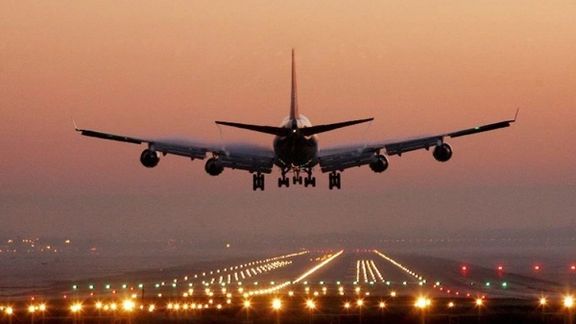
Two Iranian flights from Tehran and Mashhad to neighboring countries made emergency landings due to "technical issues," local media reports.

Two Iranian flights from Tehran and Mashhad to neighboring countries made emergency landings due to "technical issues," local media reports.
Tasnim News Agency reported that an Airbus flight operated by Qeshm Air, scheduled from Tehran to Istanbul on Saturday, was redirected back to the capital's international airport due to technical complications.
The Chief of Public Relations at Qeshm Air affirmed that the affected flight was re-schduled using a "backup aircraft" and assured Tasnim that "all passengers are safe and sound."
Tasnim, which is affiliated to the Revolutionary Guards, also disclosed that a Sepehran Airlines flight from Mashhad to Najaf, Iraq executed an emergency landing at the Hashemi Nejad Airport on Saturday.
Decades-long sanctions have inhibited Iran's ability to procure passenger aircraft and related equipment from international markets, leading to an aging national aviation fleet. Mohammad Mohammadi-Bakhsh, the Head of the Iranian Civil Aviation Organization, earlier revealed that among Iran's 330 registered planes, 139 are currently grounded. Some of these aircraft have been deemed unsuitable for return to service, raising concerns about accurately assessing the magnitude of the aviation crisis facing the country.
Iran's civilian airlines have grappled with shortages since the 1990s, often resorting to leasing older planes or acquiring spare parts through intermediaries. Over time, the technical condition of their fleet has deteriorated, culminating in the present situation that has now reached a critical juncture.

SpaceX Falcon 9 rocket was launched to the ISS with a diverse crew of four astronauts, including Iranian-American Commander Yasmin Moghbeli.
The launch marks the initiation of the Crew-7 mission, anticipated to extend beyond six months.
The multinational crew, hailing from distinct space agencies across the globe, was seated aboard the SpaceX Crew Dragon Endurance capsule.
The capsule gracefully soared atop the Falcon 9 rocket from NASA's Kennedy Space Center in Florida on Saturday.
Comprising the mission team are NASA's Jasmin Moghbeli, who assumes the role of mission commander; Danish astronaut Andreas Mogensen, representing the European Space Agency; Satoshi Furukawa from the Japan Aerospace Exploration Agency (JAXA); and Russian cosmonaut Konstantin Borisov of Roscosmos.
Following a successful launch, Commander Jasmin Moghbeli communicated her admiration for the team's performance, addressing SpaceX mission control from within the Crew Dragon capsule. "Space travel is difficult, but you make it look easy," she conveyed, acknowledging the collaborative spirit of the crew. "We're a united team with a common mission," she continued. "Go Crew-7. Awesome ride."
Celebrating the diversity inherent in the Crew-7 team, Commander Moghbeli highlighted the symbolic significance of their diverse nationalities. "We are extremely proud — and I know I personally am humbled — to be a member of this incredible crew, where if you look at our four patches you’ll see a different nation’s flag on each one," she emphasized.
Other projects involve analyzing the variations in sleeping patterns in microgravity, investigating the formation of biofilms in wastewater for enhanced water recycling methods, and contributing to the ongoing understanding of living and working in the unique environment of space.
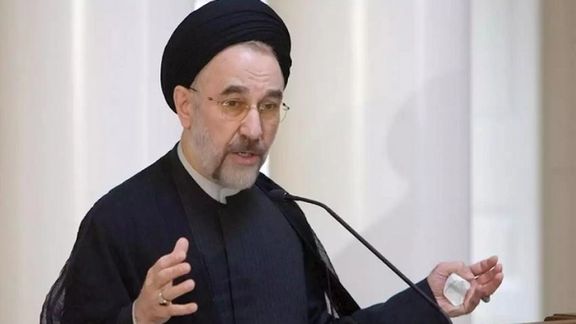
Former President and reform leader Mohammad Khatami says the Iranian regime should acknowledge its mistakes and rectify them; otherwise, it will face destruction.
According to Rouydad24, Khatami made this assertion during a meeting with former Islamist political prisoners. He added that "with this system of government, Islam, Iran and the Iranian people are likely to sustain irreparable losses."
Khatami advised Iran's reformists to "stand by the people and try to understand their problems and simultaneously convey to the government that it is treating the people poorly."
Praising the Iranian middle class as the driving force of the country, Khatami noted that the current government has pushed the middle class into the underprivileged strata of the society. He further mentioned that a portion of the Iranian middle class has emigrated, while those who remain are grappling with various issues.
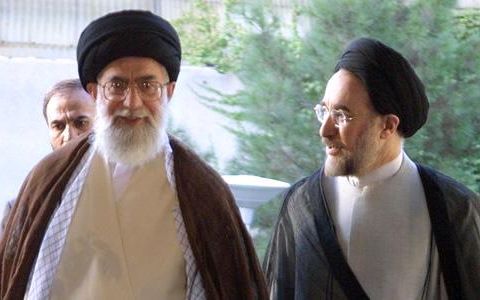
Expressing his frustration, Khatami stated, "The people are not slaves. Entrust political power to someone capable of addressing people's needs and responding to their demands. And if you plan to exert force openly, do not do so in the name of Islam." This marks one of Khatami's harshest criticisms of the system's inefficiency.
Khatami also remarked that the Islamic Revolution aimed to establish a republic akin to those in the rest of the world, aiming to eliminate backwardness, exploitation, and colonialism. These were the people's demands since the 1906 constitutional revolution, he noted. Khatami further added that the people would not have voted for the Islamic Republic in 1979 had they known this system would reject their vote, rule, and parliament.
Regarding the Iranian rulers' interpretation of Islam, Khatami stated it is incompatible with democracy and has led to various inefficiencies. He elaborated, "The Assembly of Experts was designed to appoint and dismiss the Supreme Leader and oversee their performance, and the Guardian Council was established to safeguard against misuse of people's votes. However, they were not meant to make decisions for the people."

Khatami clarified that he is not against the Islamic Revolution or the Islamic Republic but reiterated that the latter should rectify itself to become a government that promotes welfare and justice. He underscored that Iran currently lacks "good governance."
Meanwhile, in an interview with Agahi Now magazine, the former leader of Iran's Reform Front Behzad Nabavi also expressed his support for the regime by stating "We do not intend to destroy the structure of the regime. He added that Khatami speaks about politics based on contemporary requirements, while noting, "I expressed different views and faced harsh criticism from the public." He mentioned that during last year's protests, people no longer even listened to former Prime Minister Mir Hossein Mousavi, who was once revered.
Millions of disgruntled Iranians who protest in the streets or form “the silent majority” have lost trust in the regime as a whole, including reformists who are still loyal to the system after trying for more than a quarter of a century to make it more rational and democratic.
Although the interview was also published by several online media outlets, portions that were missed or deliberately overlooked by Iranian websites emerged on social media. According to some social media accounts, Nabavi criticized the election of Azar Mansouri, a woman, as the leader of the Reform Front stating, "Electing a woman to this position is unlikely to attract young Iranians to the reform camp.”
Referring to the impact of the 2022 protests on reformists, Nabavi said, "During the protests, some reformists concluded that the situation was evolving and attempted to prepare themselves for the next step by critiquing the system. However, he noted, "No one listens to reformists anymore, even those who have novel ideas."
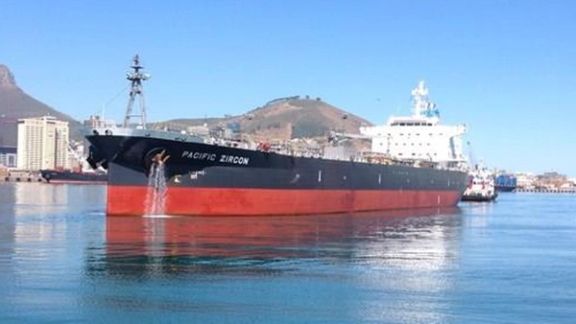
A former Iranian Oil Company official stressed Tehran's dependence on China's oil market citing global reluctance due to US sanction to import energy from Iran.
Mohsen Qamsari, during an exclusive interview with the Iranian Labour News Agency (ILNA), shed light on Iran's plans to bolster its oil production and exports in light of the declining trajectory of Saudi Arabia's oil exports.
He underscored the aspiration to achieve a daily production level of 3.4 million barrels, although he lamented the limited export opportunities beyond the Chinese market. Qamsari stated that Saudi Arabia's export reduction is insufficient to create a substantive opening for Iran's oil exports. He also argued that Saudi shipments fluctuate seasonally.
In the context of Iran's oil market dynamics, Qamsari illuminated Russia's perception of Iran as a competitor, exemplified by its decade-long actions aimed at diminishing Iran's presence in the oil markets. This competitive environment also endures regarding China. The proximity of Russia to China, fortified by a pipeline facilitating Russian oil exports to China, further exacerbates the challenge for Iran in the Chinese market.
Iran's oil minister recently announced a projection of reaching a daily crude oil output of 3.4 million barrels by the end of September, despite ongoing US sanctions.
TankerTrackers.com has reported that in the initial 20 days of August, Iran dispatched an average of over two million barrels of oil daily, marking a more than 30-percent surge compared to the past few months.
The renewed growth in production and exports coincides with an agreement permitting the release of $6 billion of Iranian funds frozen in South Korean banks, potentially indicative of broader diplomatic dealings beyond the public eye.

Iranian conservative Asadollah Badamchian claimed without evidence Mahsa Amini, who died in morality police custody, supported the a Kurdish militant group.
Badamchian, who is a long-time regime insider, accused the symbol of the antiregime movement of being a part of the Kurdish Komala Party three weeks before her death anniversary, expected to be a tumultuous period in Iran.
The Islamic Republic designates Kurdish armed groups operating in western provinces of Iran as either "terrorist groups" or "anti-revolutionary." These groups, however, assert that their armed campaigns are aimed at "defending the rights of the Kurds."
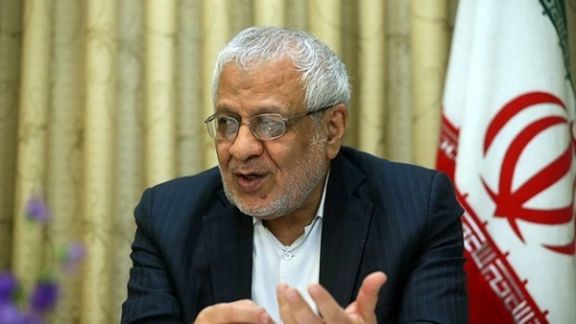
Badamchian in an interview with ILNA alleged that there exists a photograph depicting Mahsa Amini engaged in dancing with the Komala Party.
Badamchian tried to defend Amini's arrest by the morality policy last September, saying that "she was inappropriately dressed." During this process, Amini became visibly agitated, subsequently collapsing and passing out. Subsequent to these events, an organized movement, both domestically and internationally, emerged involving media outlets such as BBC, CNN, Manoto TV, and Zionists, alleging that Mahsa Amini had been fatally harmed by the morality police.”
Mahsa Amini received fatal head injuries during the brief period she was under arrest.
Badamchian, a hardline principlist politician with two parliamentary terms to his name, and a founding member of the Islamic Coalition Party, even claimed that the regime exhibited some “leniency” toward Mahsa Amini.
Amidst the fallout from Mahsa Amini's tragic incident, a series of protests erupted, resulting in the loss of over 500 lives at the hands of the regime's agents. Approximately 22,000 arrests were made, with seven executions and additional death sentences on dubious charges casting a shadow over the broader discourse.
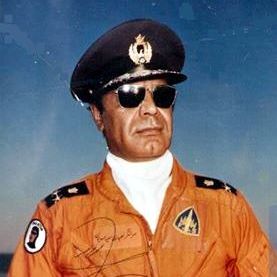
Iran's Judiciary has called on the US government to pay $330 million in compensation for its alleged role in the Nojeh coup plot against Iran's regime in July 1980.
Widely referred to as the Nojeh Coup, the Saving Iran's Great Uprising was a scheme aimed at toppling the recently formed clerical regime Iran, along with its leadership under President Abolhassan Banisadr and Ruhollah Khomeini.
The plot, which was never executed, involved officers of Iran's royal army and civilians opposed to the Islamic Republic. This is the first time that the Iranian regime is accusing the United States of involvement in the plot.
According to the court verdict, the US government has been sentenced to pay $30 million for material and moral damages to the plaintiffs and $300 million for punitive damages.
The judiciary media center announced Saturday that “an open court session was held last month to address the claims of the families of the victims of the coup incident. The session took place at a judicial complex in Tehran, with the presence of survivors and those affected by the incident.”
The coup plot involved personnel from infantry, air force, army, and secret service of the Shah. It was largely foiled by the arrest of numerous officers on July 9-10, 1980, at Nojeh Air Base near Hamedan, west of Iran.
The demand from the Iranian regime comes in the wake of a deal with the Biden administration earlier this month to unblock $6 billion of Iran's frozen funds in exchange for five US citizens held hostage by Iran.
While Khomeini ordered the execution of those involved, Banisadr employed legal tactics to postpone the executions. With the Iraq invasion, many were released under the pledge of returning to duty. Nonetheless, 144 participants were executed, and 2,000–4,000 military personnel were dismissed.






